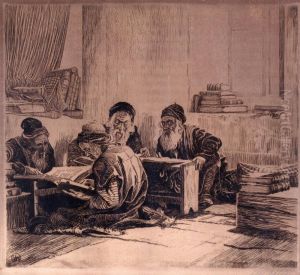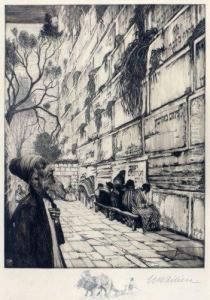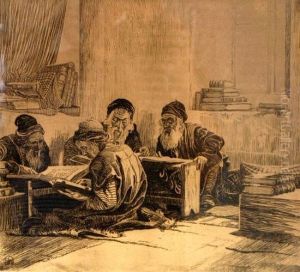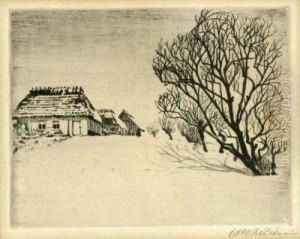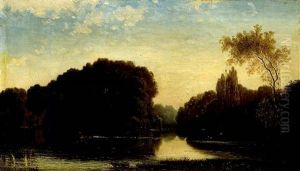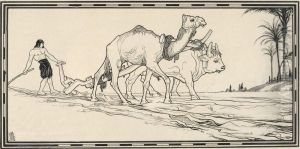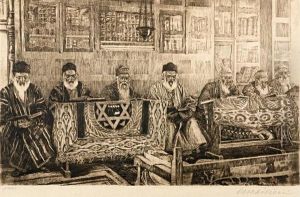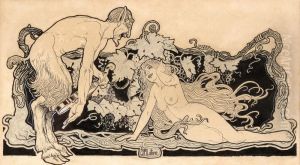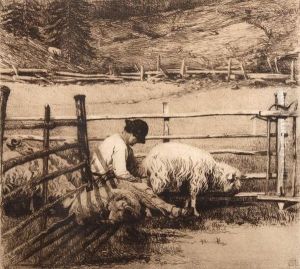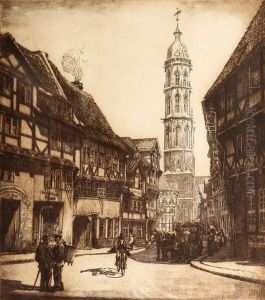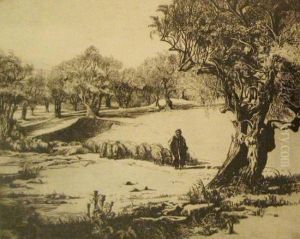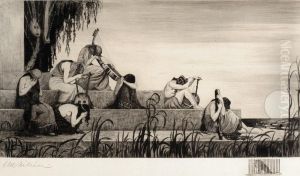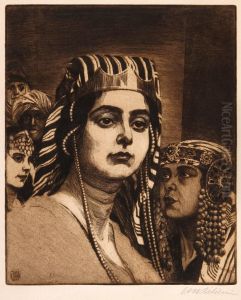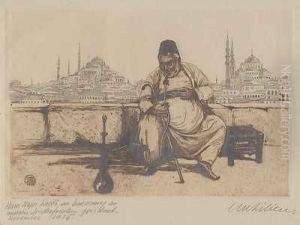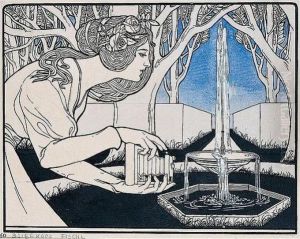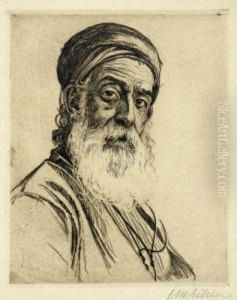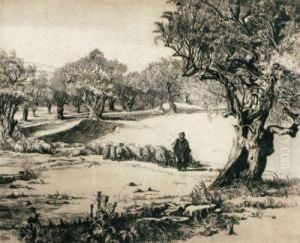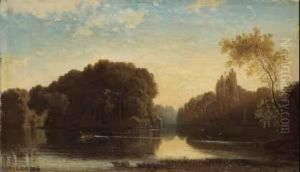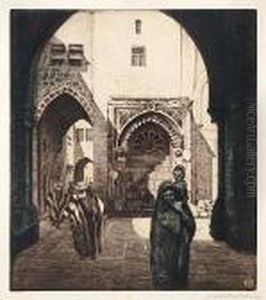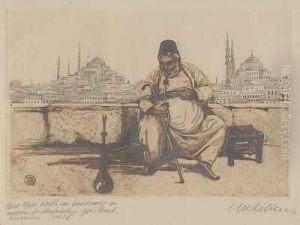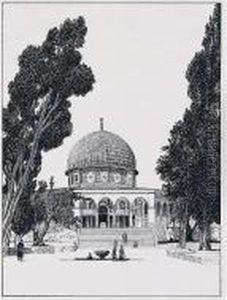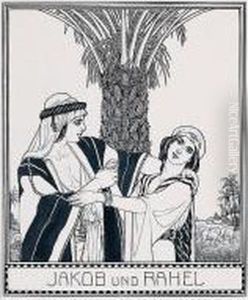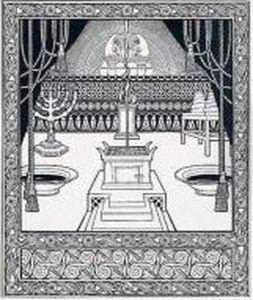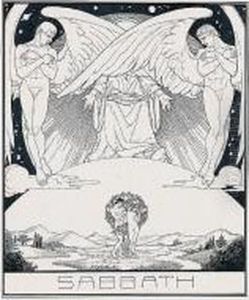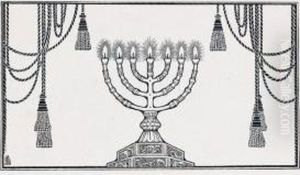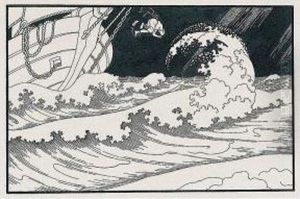Ephraim Moshe Lilien Paintings
Ephraim Moshe Lilien was an art nouveau illustrator and printmaker particularly noted for his art on Jewish themes. Born on May 23, 1874, in Drohobycz, then part of the Austro-Hungarian Empire and now in Ukraine, Lilien was a pioneer of the Zionist art movement. His work is characterized by its synthesis of traditional Jewish motifs with contemporary art nouveau and symbolic styles.
Lilien received his early education in art at the Lviv (Lemberg) School of Arts and Crafts, where he studied from 1890 to 1892. In 1892, he moved to Kraków, where he continued his education in art and was influenced by the symbolist movement and the works of Jan Matejko, a renowned Polish historical painter.
In 1899, Lilien traveled to Germany and joined the Berlin Secession, a group that rebelled against the traditional academic art of the time. During this period, he collaborated with Jewish writer and Zionist leader Theodor Herzl, providing illustrations for Herzl's utopian novel 'Altneuland' ('Old-New Land') and for the Zionist newspaper 'Die Welt'. Lilien's illustrations were instrumental in shaping the visual iconography of early Zionist culture.
Lilien's work often depicted biblical and Zionist themes. He is particularly known for his innovative use of the zincography printing technique, which allowed him to achieve delicate and elaborate illustrations. His style combined the linear qualities of the art nouveau movement with the mystical and ethereal motifs found in Jewish folklore and scripture.
During his lifetime, Lilien was involved in various art-related Zionist activities. He was a founding member of the Bezalel School of Art in Jerusalem, which was established in 1906 as part of an effort to create a unique Jewish art form that combined European techniques with Oriental aesthetics. However, Lilien returned to Europe in 1907 and spent the rest of his life there, continuing his artistic work and participating in exhibitions.
Lilien's legacy extends beyond his contributions to Zionist art. He is recognized for his role in modernizing Jewish art and for his influence on later Israeli artists. Ephraim Moshe Lilien passed away on July 18, 1925, in Badenweiler, Germany. His art remains an integral part of the history of Jewish and Israeli art and continues to be celebrated for its beauty and cultural significance.
